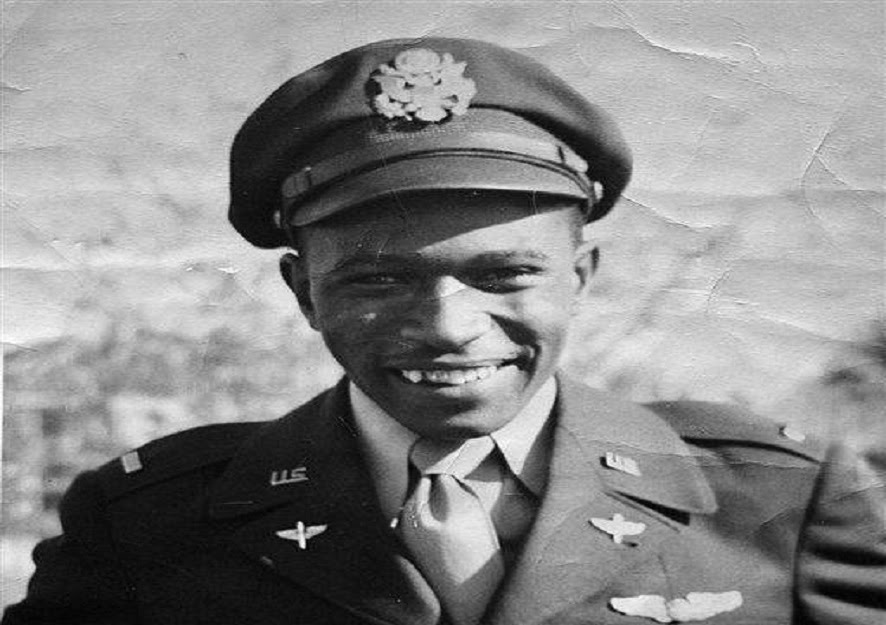In Memoriam
Stewart Fulbright, Tuskegee Airman and business school dean, dies at 92
Stewart Fulbright, a trailblazing black educator who piloted a bomber during World War II as one of the Tuskegee Airmen and later served as the first dean of the North Carolina Central University School of Business, has died, He was 92.

Stewart Fulbright, a trailblazing black educator who piloted a bomber during World War II as one of the Tuskegee Airmen and later served as the first dean of the North Carolina Central University School of Business, has died, He was 92.
His son, Edward, says Fulbright died in Durham, N.C., on New Year’s Day after a short illness. A funeral is planned for Saturday at Covenant Presbyterian Church.
About Stewart Fulbright
Born in Springfield, Mo., in 1919, Fulbright enlisted in the Army Air Corps in 1943. He was one of about 1,000 men trained in Tuskegee, Ala., as the first Black pilots, navigators and bombardiers in the U.S. military.
Stewart Fulbright worked at NCCU from 1947 until his retirement in 1982, becoming the first dean of the business school in 1972.
About Tuskegee Airmen
From history.com:
The Tuskegee Airmen were the first Black military aviators in the U.S. Army Air Corps (AAC), a precursor of the U.S. Air Force. Trained at the Tuskegee Army Air Field in Alabama, they flew more than 15,000 individual sorties in Europe and North Africa during World War II. Their impressive performance earned them more than 150 Distinguished Flying Crosses, and helped encourage the eventual integration of the U.S. armed forces.
During the 1920s and ‘30s, the exploits of record-setting pilots like Charles Lindbergh and Amelia Earhart had captivated the nation, and thousands of young men and women clamored to follow in their footsteps.
But young African Americans who aspired to become pilots met with significant obstacles, starting with the widespread (racist) belief that Black people could not learn to fly or operate sophisticated aircraft.
In 1938, with Europe teetering on the brink of another great war, President Franklin D. Roosevelt announced he would expand the civilian pilot training program in the United States.
At the time, racial segregation remained the rule in the U.S. armed forces—as well as much of the country. Much of the military establishment (particularly in the South) believed Black soldiers were inferior to whites, and performed relatively poorly in combat.
Discover more from Unheard Voices Magazine
Subscribe to get the latest posts sent to your email.
-

 Crime & Justice1 week ago
Crime & Justice1 week agoBlack couple survives alleged racist attack, car crash in rural Virginia
-

 Black And Missing1 week ago
Black And Missing1 week agoBody of missing North Carolina teen Giovanni Pelletier found in Florida retention pond, family confirms
-

 Crime & Justice2 weeks ago
Crime & Justice2 weeks agoFlorida teen arrested after allegedly killing parents
-

 Crime & Justice2 weeks ago
Crime & Justice2 weeks agoMaryland woman sentenced to 50 years after her young niece and nephew’s remains found in trunk
-

 Social Justice2 weeks ago
Social Justice2 weeks agoBlack utility worker accuses Florida couple of threatening him with lynching
-

 News1 week ago
News1 week agoFamily seeks justice for San Antonio, TX woman fatally mauled by pitbull dog
-

 Social Justice2 weeks ago
Social Justice2 weeks agoJacksonville Kohl’s employee accused of racial profiling after confronting Black shopper in viral video
-

 Beauty & Fashion2 weeks ago
Beauty & Fashion2 weeks agoTexas barber rebuilds after witnessing shocking murder-suicide in salon


























